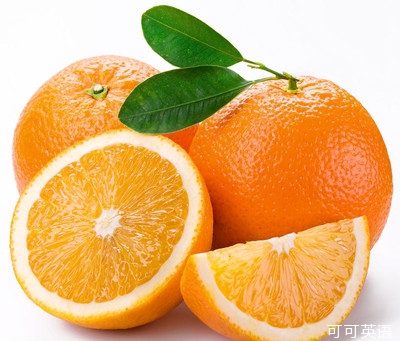Why We Refrigerate Fruits and Vegetable
我们为什么冷藏水果和蔬菜
Everyone knows you should put spinach and berries in the refrigerator, but exactly how do cooler temperatures keep most fruits and vegetables from spoiling rapidly?
每个人都知道应该把菠萝和浆果放进冰箱,但冰箱到底是如何防止这些水果和蔬菜快速腐烂呢?
Spoilage is inevitable, but refrigeration slows it down in two ways. First, cold temperatures interfere with the growth of microorganisms that harm food, such as bacteria, mold, and yeast. In order to grow, any microorganism that could damage fruits or vegetables needs food, a favorable moisture content, and a favorable temperature.
腐烂是不可避免的,但制冷器有两种方式来减缓这一过程。首先,低温能够阻碍微生物的生长,例如细菌,霉菌以及酵母菌。这些微生物能够破坏水果和蔬菜,但为了生长,任何微生物都需要食物,充足的水分和适宜的温度。

Obviously, it is impossible to eliminate a food source for these microorganisms, so other factors that facilitate their growth must be eliminated. We refrigerate food to keep bacteria, yeasts, and molds from the favorable temperature they need to grow. The moisture-control available in many refrigerators also helps slow the deterioration of foods, so that two of the three favorable situations for microorganism growth are eliminated.
很明显,不可能为了对抗这些微生物而消灭食物源,因此必须消灭使细菌耐以生存的其他因素。我们将食物储存在低温下,使细菌、霉菌和酵母菌远离他们生长所需的适宜温度。许多冰箱有湿度控制功能,这也能帮助减缓食物的腐烂,因此阻断了微生物生长所需的两个有利因素。
Though the microorganism growth is slowed down at low temperatures, it still can occur at the 38 degrees of an ordinary refrigerator. Hence, the mold that grows on forgotten leftovers in the back of a refrigerator. The second benefit of refrigeration is that it slows down the food's own natural processes that lead to ripening and eventual decay.
尽管微生物在低温条件下生长缓慢,但即使将普通冰箱设置成38度的高温,微生物仍会存在。因此,冰箱内被遗忘的剩菜里会有霉菌出现。冰箱的第二个好处是减缓食物本身的自成熟至最后腐烂的自然过程。
For fruits and vegetables, the very chemical processes that cause plants to grow and ripen also cause them to rot. In effect, refrigeration helps save the plant tissue from itself. Keeping these foods at low temperatures dramatically slows this aging process.
对于水果和蔬菜而言,诱使植物生长和成熟的化学过程同样也会导致食物腐烂。实际上,冰箱有助于保留植物本身的组织。将这些食物在低温下保存会极大地减缓老化过程。













